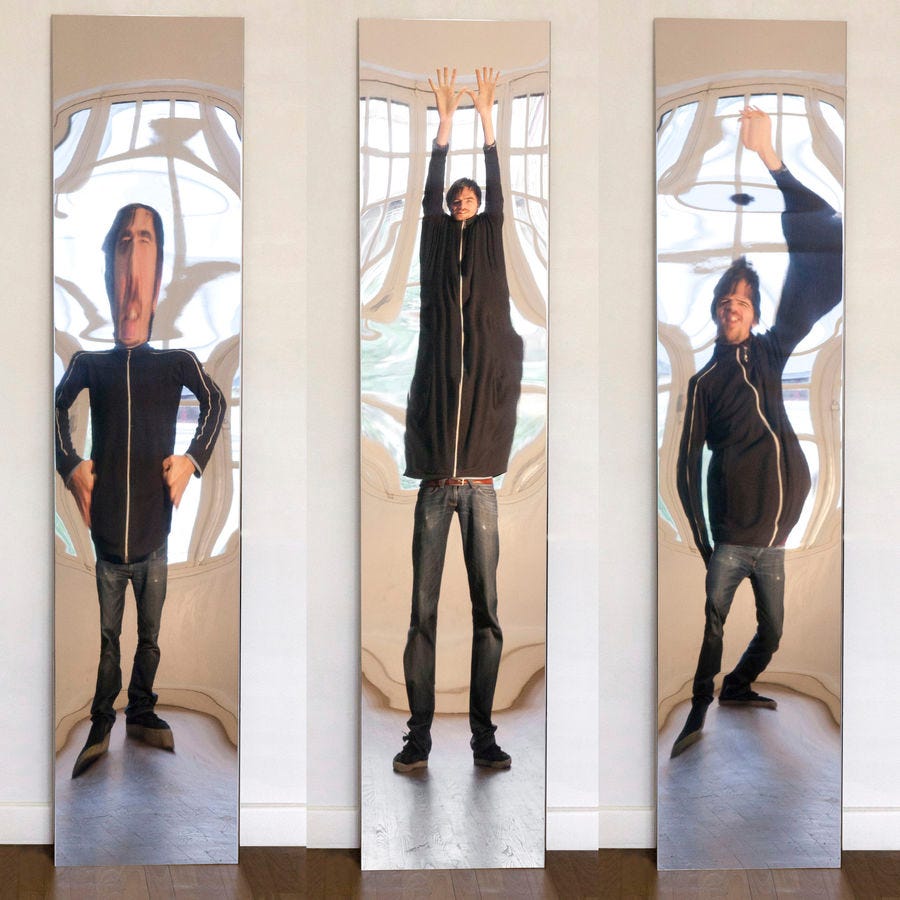fighting loneliness in america
isolation, our stunted spirituality, and what christians should do about it
the state of friendship in the usa
Recently, a number of reports have come out on a study by the Census Bureau’s American Time Use Survey, reporting a steep decline in friendship in American life. From 2010-2013, the average American spent 6½ hours per week with friends, a number that had held fairly constant from the 1960s.
Since 2014, however, a steep decline has begun in the amount of time we spend on friendships. By 2019, we spent only 4 hours a week with friends, and in 2021, in the aftermath of the pandemic, our weekly time on friendships dipped to only 2 hours and 45 minutes a week. That represents a staggering 58% decline in less than a decade.
According to the New York Times, the friendship deficit is particularly pronounced among men. Less than half of American men report being satisfied with their friendships. 15% report having no close friends at all. And, according to Jim Geraghty of the National Review, it’s even worse for single men: “One in five American men who are unmarried and not in a romantic relationship report not having any close friends.”
It would be an understatement to call this a dramatic cultural shift. To more than halve the amount of time spent in friendship across the nation indicates something profound at work in our culture. According to economist Bryce Ward, we have taken the time we once spent in relationships and dramatically increased the amount of time we spend alone. Given our increasing isolation and alienation from one another, it is little wonder that mental health issues have increased significantly over the past decade.
counteracting our malformation
As embodied, situated creatures, we can’t help but be influenced by the world around us. Part of the reason American Christians don’t see the sacramental nature of ourselves and our neighbors—and, therefore, the profound privilege it is to belong to one another in friendship—is the way in which we have been malformed by the cultural forces at work on and around us.
If we are going to grow up into Christ and be transformed in him, rather than be conformed to the culture (Romans 12:1-2), we must take seriously the reality of our malformation as 21st century residents of the United States. We need to learn to be in but not of this world (see John 17:15-17).
I’d like to highlight three things—two truths and a call to action—to help us counteract our malformation.
1. God is community
It starts with the recognition that God is community. Christians confess that God is Father, Son and Holy Spirit, living in perfect love and interdependence, recognizing their need for one another and submitting in joyful belonging to one another. The mystery of the Holy Trinity, and our participation in the divine through Christ, inexorably leads us to relationship with one another. We could even say (hopefully without any hint of sacrilege) that God is Friendship in Himself.
If we’re going to participate in God’s life through Christ, then we must say, “No!" to our cultural trajectory, and actively overcome the tendency to be isolated from one another. To be faithful Christians, we must be in community. To be like Jesus, we have to cultivate friendship.
2. we are (inter)dependent
As creatures, we are fundamentally dependent on our Creator. David prayed, “You are my Lord; I have no good apart from you” (Ps. 16:2). If we take his words seriously, we find that there is nothing in our lives that we can call “good” that doesn’t come from God. He holds our very breath in his hands (Psalm 104:29); even our existence is dependent upon him (Acts 17:28).
If we allow ourselves to accept this deep, sacramental reality—that fundamentally we are dependent beings—then we will become far more open to the interdependence required for thriving human relationships. Acknowledging our dependence will, I think, open us to the reality of our interdependence on those around us, and free us up for the kinds of friendships we all want and need.
3. rebuild relationships that look like good news
In coming to grips with the reality of our participation in the Triune life of God and acknowledging our dependence upon him and interdependence with one another, we will be put in position to rebuild relationships that look like good news. This is a necessary step if we will be at all fruitful in our Christian lives and gospel witness.
Our culture is in the process of losing relationships because we no longer think that relationships are good news. They’re messy. Inconvenient. They demand more of me than I often want to give. They associate me with imperfect people. They open me to the possibility of pain.
These are real concerns, and many of us have suffered in toxic relationships with others. Relationships don’t seem like good news, and so our world is in the process of turning away from them.
In communion with God and one another we have the resources we need to rebuild relationships that look like good news. The wisdom of Scripture tells us two are better than one (Ecc. 4:9); we can lean into relationship with that in mind. More than this, we have been graciously given the friendship of God himself in Christ (John 15:15). Having been given that sort of sacrificial, loving friendship in Jesus (John 15:13), we can move toward one another in the same love (Phil. 2:2). In other words, to be good Christians, we must be good friends.
What do you think? Have you experienced more obstacles to friendship in recent years? How have relationships with others helped you become grow spiritually? Click on the button to share your thoughts!







Viewing friendship as sacramental didn’t really happen for me until a few years ago. And it has been so life changing and life giving! For me, friendship always felt a bit empty, surface level and based on common interests. When my view shifted to seeing Christ/showing Christ in my friendships, friendships became deeper, more real and more satisfying. And it became more vital to my everyday living!
You and your family have played such a huge role in that shift for me. Yay for friends!!!
https://www.nytimes.com/2023/09/24/opinion/friendship-loneliness.html?fbclid=PAAabd35zn0fTw0TB9aO_GDF6zt8mA_9QMqvdnmo4VMezjMXE3CbDHP4N53Hw_aem_AWGF3BjBNld1kUMYDQMY47bkKU5TpmGgRnI209LJfjEIVgE7JKY0TdZ4PVXVFgKUp3A